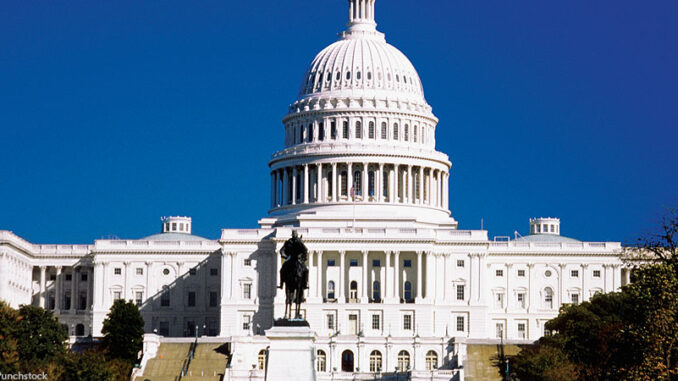
Congress is about to return from its month-long summer recess. They will be faced with the major task of passing a continuing resolution to fund the government for the next fiscal year, which begins October 1. Failure to reach an agreement could result in a government shutdown, which is what happens when a legislative body cannot agree on a budget for its programs. Members of both the Republican and Democratic parties say they want to avoid this measure, but neither side can agree on a solution. Because the Democrats control the Senate and the Republicans control the House, it is not unusual for issues with wide opposition to become stalled.
What’s Causing the Gridlock?

The biggest obstacle to an agreement on a federal budget seems to be how to fund the Patient Care and Affordable Care Act (PPACA), more commonly known as Obamacare. This bill, which requires individuals to acquire a minimum level of health insurance, was signed into law on March 23, 2010. However, there have been multiple attempts by critics in Congress to defund (or keep taxpayer dollars from paying for) the program. Those who support the PPACA believe it will decrease the national deficit by resulting in a reduction of Medicare and Medicaid payments to hospitals. Those who oppose the legislation feel the law introduces too many opportunities for fraud and violations of privacy. Other critics simply see the law as a big tax increase that will hurt the economy by burdening small businesses and other job creators who must find ways to provide minimum health insurance for their employees.
Another big concern that is part of the budget deadline is that the federal government is reaching its borrowing limit, otherwise known as the debt ceiling. This ceiling is set at $16.7 trillion. If the federal government reaches this maximum level of borrowing, the country will not be able to meet existing financial obligations such as paying military salaries, providing government pensions and making Medicare payments without first raising the ceiling to another maximum level.
Earlier this year, the government was subject to “sequester,” a set of automatic budget cuts that were set to occur if Congress could not come to an agreement on a new budget. Economists warn that reaching the debt ceiling could result in significant disruptions to financial markets, which may result in harm to the U.S. economy.
Options
The U.S. Treasury Secretary, Jacob Lew, recommended that Congress increase the debt ceiling to avoid such damage. President Obama, however, said he would not negotiate over the debt ceiling. Speaker of the House John Boehner called for a short-term extension to the debt ceiling. He faces opposition from conservatives on this, who want federal government spending slowed down. Senate Republicans are divided over how big a deal they can accept. Some suggested they would accept a small deficit deal to cancel out sequestration, sparing cuts in the Pentagon. Others reject this, holding out for broader cuts from Medicare and Social Security. White House officials want higher taxes to gather the revenue needed to pay the bills. Higher federal taxes is a strong deal-breaker for most Republicans.
If the government is shutdown, all “non-emergency” services of the federal government cease until new legislation can be agreed upon. The Armed Services, police and fire, utilities and prisons would continue to operate. While it is inconvenient, shutdowns are not considered catastrophic. Some Republicans feel a temporary shut down might be a necessary shock to achieve long-term economic goals. There have been seventeen government shutdowns of varying length since 1977. The most recent shutdown was in 1996, when 800,000 government workers were “furloughed” (placed on temporary, unpaid leave).
What Do You Think? Follow this story in the news. Do you think that Congress will come up with a solution by September 30, or do you think that the government will shut down? Why or why not?
